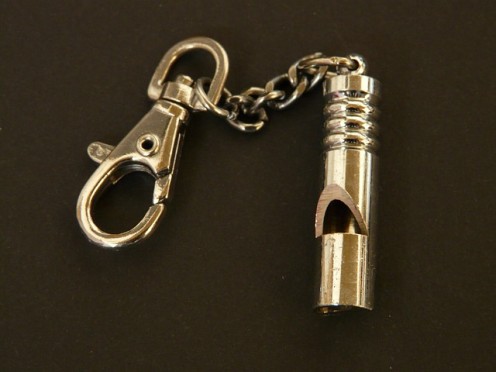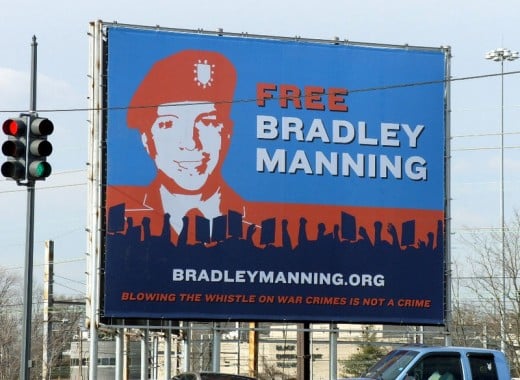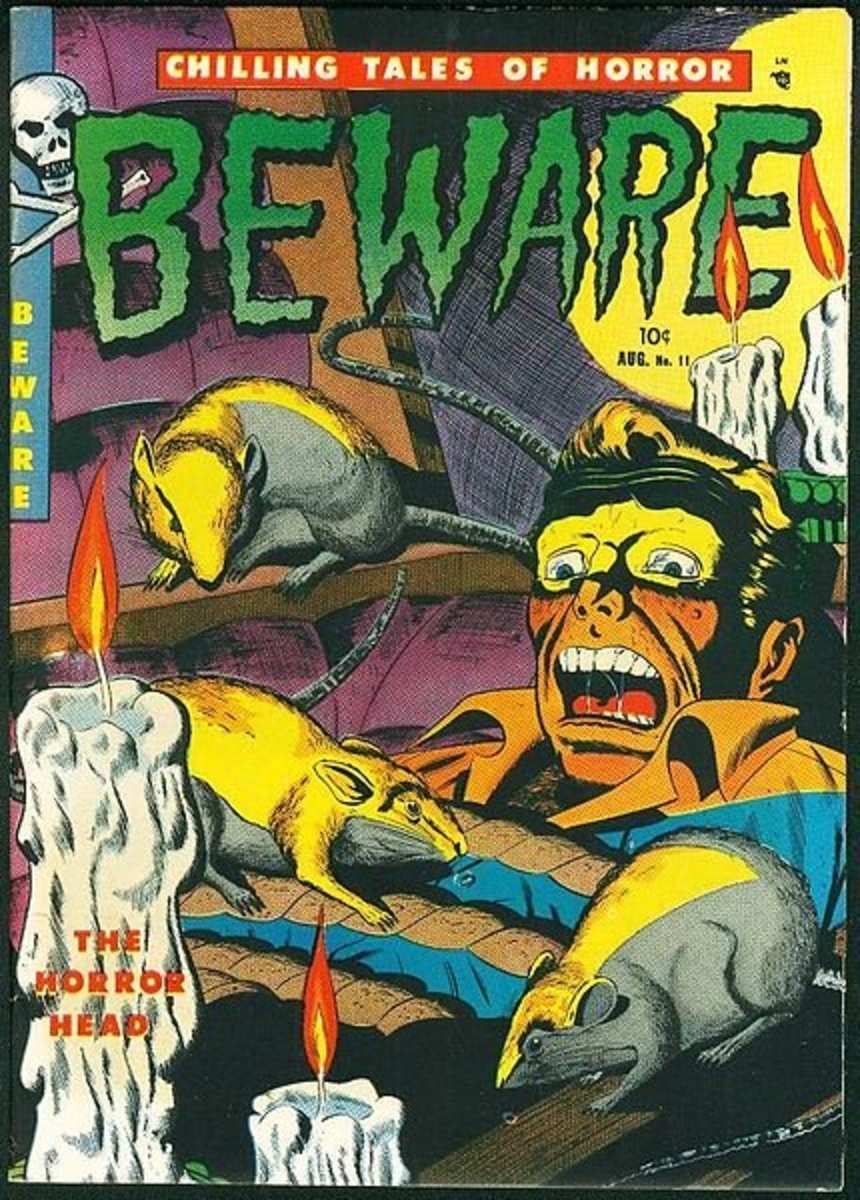Whistleblowing In America

Whistles and Their Uses
Whistleblowing is named after the traditional action of police officers in which they blow a whistle to signal that a crime is underway and backup is needed. Crime films set in England often show the British police blowing whistles in this manner. Sports referees also blow whistles - to stop action on the playing field and often to call a foul against a player and/or to mete out penalties or award free throws and the like. The whistle gets attention.
"Blowing the whistle" in industry and government is about calling out a crime and its perpetrator. This whistle gets attention and sometimes, not all of it good. Hence, the controversies about the practice.
Fear and Fellow Travelers
Reporting individuals, companies, organizations, or government agencies draws attention to and often stops illegal activities. Instead of a whistle, the "whistleblower" reports to authories and/or the news media for broadcasting the information. However, personal cost may be attached to the reporting. In the 1970s, for example, whistleblowers were often shunned. Some people fear them even in th 2010s. This fear may never disappaear in any decade.
Not only did some organizations in the 1970s retaliate against whistleblowers with a number of consequences that included job loss, but the friends and neighbors of the person sometimes felt that their own jobs were endangered by socializing with the person. They also feared that whistleblowing would put the company out of business.
This shunning was reminiscent of the 1950s' blacklisting and its seeking out of fellow travelers (Communist sypathizers) for targeted discrimination. Then, laws protecting whistleblowers were passed in the 1970s and began to be enforced.
Still, some individuals fear whistleblowers in modern times, afraid that the reporting person is also looking for something about them to report as well. In some ways, it's still the 1950s.
The Whistleblower Protection Act of 1989 (WPA) is a law that protects federal government employees in the United States from retaliatory action for voluntarily disclosing information about dishonest or illegal activities occurring at a government organization.
— searchcompliance.techtarget.comHubPages Q & A:
Should whistleblowers be shunned or applauded for bringing a true glimpse into business practices? -- asked by Hubber kenjmo (7/27/2013)
Whistleblowing: Subversion or Corporate Citizenship? -- asked by author Gerald Vinten (10/28/1994)
These are very good questions, related yet a decade apart.

Examples of Whistleblowing
In the 2010s, whistleblowing took up a sizable expanse of media reporting in the cases of Wikileaks (war information and Spy Files, etc.) and the Edward Snowden case (Internet and telephone monitoring by government).
Together, the two cases provide a massive amount of information about which the American people can be worried. There may be elements of heroism and treason in both cases, but controversy is likely to remain round both for decades into the future. At the same time, it would seem that uncovering information about illegal and harmful acts by governments against populations should be considered heroic.
Not all cases are as big as the ones mentioned above. In my area, there have been a few that involved employees reporting public and private companies and individuals for illegal actions that harmed employees and the public.
Whistleblowing in Small to Medium Sized Businesses
The smaller-scale cases in my region involved restaurants and social service organizations that experienced financial problems and chose some odd ways of addressing them. These ways were odd enough to raise employee ire:

- One restaurant in a chain ordered frozen meat on a weekly basis. An employee noticed that the bottom five cases of the stack in the freezer always had the same expiration date, long ago passed. Opening the corner of one of the cases, he found that it was full of rocks - five cases of rocks were counted as inventory every week. On top of some payroll problems, this was enough to cause a report that resulted in the manager's firing. None of the crew lost their jobs.
- In a smaller retaurant in another chain, the manager watered down the sodas and salad dressings, shorted every employee 15 minutes of pay per shift, and did something else very bold. He owned a hotdog cart in the downtown area and the paper and food supplies he used on it came from the restaurant he managed, stolen without remorse. Again, he lost his job without the crew losing theirs.
- One individual in our town was reported at a nonprofit company, a college, a hospital, and a department with the state for not working hours recorded on his timesheet. This amounted to 100s of hours and a lot of money on a yearly basis, which employees reported at each location.The individual is banned from employment with the state and any of its contrators and grantees.
- A doctor in town was reported for double billing for patient services associated with Workers Compansation and Social Security Disability, as well as for other infractions. Surprisingingly, this individual lost his license to practice for only three months. It was a small practice and his staff fortunately found other employment.
While the whistleblowers in the above cases may not be heroes, they certainly saved their companies money and saved customers increased costs resulting from theft losses. Saving others' money can be heroic, especially during and after the Great Recession.
Whistleblowing - Good or Bad?
Authors and the public have been asking the question more frequently for over a decade (1994 - 2013) at least. This is likely the result of increased media play around a larger number of people being confident enough to report illegal activities in business and government since the 1980s.
Today, placards inside city buses urge riders to report anything suspicious to authorities. This encouragement targets reporting of illegal drugs and terrorist activities, but the concept has leaked into the business and government worlds.
Watching television and internet broadcasts about individuals that have "blown the whistle" successfully is also an encouragement for more instances of the practice to occur. Whistleblower protection laws against employer retaliation also help in that regard.
The Occupational Safety and Health Act (OSHA) in 1970 set up some of the first protective strategies for the reporters of dangerous conditions in the workplace that employers were not attending (including in restaurants like those mentioned above). However, OSHA does not oversee nonprofit agencies for compliance, although OSHA will provide safety training.
One of the very first whistleblowing laws was Quin Tam from 13th Century England, which followed into the American Colonies. In the Civil War During 1863, the False Claims Act was passed into law to allow people not affiliated with the government to be entitled to file claims against government contractors.

What Is Whistleblowing?
One thing that whistleblowing is not, is this:
Breaking rules, regulations, or laws, suffering justly deserved consequences, and then complaining to anyone who will listen or read one's complaint that the employer, agency, or similar entity illegally wronged one. This is like the antics seen in Jerry Springer-like exploitation television shows. It might even be entertaining, but it is not whistleblowing.
Whistleblowing is the act of reporting illegal activity done by a company, government agency, or other group or individual to the appropriate authorities and then often times, to the news media. Media attention is particularly dangerous to the reported person or organization. In the case of reporting government activity, either the media or the UN might be the place to report.
Selling government defense secrets to a foreign agency is not whistleblowing, but it is treason and a felony. One cannot say, "I don't like what the USA is doing, so I'm going to sell secrets to 'Country X.'" Someone may call that whistleblowing in order to defend their position, but it is not.
In the Wikileaks and Snowden cases, it looks like defense secrets were leaked without payment, eventually reported by UK's The Guardian in each case, as well as other media.
Bradley Manning, charged with 22 counts in his Wikileaks related trial, was convicted of five counts of espionage, along with theft and some other crimes. He was not convicted of aiding the enemy. To many, he may be a hero, but not to all.
Edward Snowden at this time has been offered refuge in Russia, complicating US-Russian relations. While some legislators call for the US to boycott the 2014 Winter Olympics in Sochi as retaliation, this will likely not occur. If it would occur, at least a portion of supporters of the Olympics would see Snowden as a villian.
Sources
- Brown & Williamson Tobacco. Jeffrey Wigand - National Whistleblower Center: Over use of addictive substances in products.
- Kenny, K. Whistleblowing: Toward a new theory. 2019
- Kerr- McGee Cimarron Fuel nuclear facilities. Karen Silkwood, played by Maryl Streep in Silkwood.
- NYPD. Frank Serpico (exposed police department corruption)
- OSHA -- Whistleblowing: DWPP Home Page
- Salt Lake City 2002 Winter Olympics: Marc Holder, city-bid-for-games scandal.
- U.S. Federal Government. Peter Buxton exposed the Tuskegee syphilis experiments.
- Watergate: W. Mark Felt, aka "Deep Throat" - Theft of Democrat materials, etc.
This content is accurate and true to the best of the author’s knowledge and is not meant to substitute for formal and individualized advice from a qualified professional.
© 2013 Patty Inglish MS








